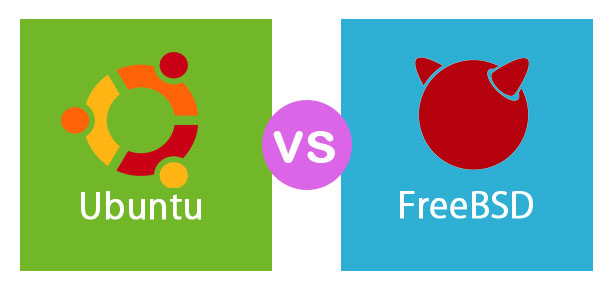When it comes to choosing an operating system for servers, desktops, or specific applications, the decision often comes down to two robust options: Ubuntu and FreeBSD. Both are powerful, open-source systems but cater to different needs and preferences. This article will delve into the details of Ubuntu and FreeBSD, comparing their pros and cons, top usages, and key differences to help you make an informed choice.
What is Ubuntu?
Ubuntu is a Debian-based Linux distribution developed by Canonical Ltd. It is known for its ease of use, regular updates, and extensive community support. Ubuntu is available in various flavors, including Ubuntu Desktop for personal computers, Ubuntu Server for server environments, and Ubuntu Core for IoT devices.
What is FreeBSD?
FreeBSD is a free and open-source Unix-like operating system descended from the Berkeley Software Distribution (BSD). It is renowned for its performance, advanced networking, security features, and system consistency. FreeBSD is often used in servers, embedded systems, and network appliances.
Pros and Cons
Ubuntu
Pros:
- User-Friendly: Ubuntu is known for its ease of installation and user-friendly interface, making it accessible to beginners.
- Extensive Software Repositories: With thousands of software packages available, users can easily find and install applications.
- Community and Commercial Support: Backed by Canonical, Ubuntu offers extensive community support and professional services.
- Regular Updates: Ubuntu has a predictable release cycle with regular updates and Long-Term Support (LTS) versions that offer stability for enterprise use.
- Wide Adoption: Popular in both personal and enterprise environments, ensuring broad software compatibility and community resources.
Cons:
- System Overhead: Ubuntu can be more resource-intensive compared to some other Linux distributions or FreeBSD.
- Security: While secure, Ubuntu’s focus on user-friendliness sometimes leads to defaults that may need tightening for high-security environments.
FreeBSD
Pros:
- Performance and Stability: FreeBSD is optimized for performance and is known for its stability, especially in network and server environments.
- Advanced Networking: Features advanced networking capabilities and native support for various protocols, making it ideal for network appliances.
- Security Features: Includes robust security features such as jails (lightweight virtualization) and a focus on security from the ground up.
- System Consistency: FreeBSD provides a complete operating system, including the kernel, system libraries, and userland tools, all maintained in one coherent package.
- ZFS File System: Natively supports the ZFS file system, which offers advanced storage features like snapshots and data integrity verification.
Cons:
- Steeper Learning Curve: FreeBSD can be more challenging to set up and manage, especially for those new to Unix-like systems.
- Software Availability: While FreeBSD has a robust ports collection, it may not have as many precompiled packages as Ubuntu, leading to more manual installations.
- Desktop Support: FreeBSD is primarily server-oriented, and while it can be used as a desktop OS, it requires more configuration.
Top Usages
Ubuntu
- Desktop Computing: Ubuntu Desktop is popular among personal users, educational institutions, and businesses for everyday computing tasks.
- Server Deployments: Ubuntu Server is widely used for web servers, database servers, and cloud computing, including Ubuntu’s own cloud offering.
- Development Environment: Favored by developers for its wide range of development tools and environments, along with strong community support.
- IoT Devices: Ubuntu Core is optimized for IoT devices, offering security and regular updates.
FreeBSD
- Web and Network Servers: FreeBSD’s stability and networking capabilities make it ideal for web servers, mail servers, and high-performance network appliances.
- Embedded Systems: Frequently used in embedded systems due to its performance and flexibility.
- Storage Solutions: Leveraging the ZFS file system, FreeBSD is used in storage solutions where data integrity and advanced file system features are crucial.
- Security Appliances: Often used in firewalls and VPN solutions due to its security features and advanced networking capabilities.
Key Differences
- System Architecture: Ubuntu is a Linux distribution, while FreeBSD is a Unix-like OS with a different lineage and system architecture.
- Package Management: Ubuntu uses
aptfor package management, making software installation and updates straightforward. FreeBSD uses the Ports Collection andpkgfor package management, offering flexibility but sometimes requiring more manual intervention. - Licensing: Ubuntu follows the GNU General Public License (GPL), whereas FreeBSD uses the permissive BSD license, which has fewer restrictions on redistribution.
- Kernel and Userland: Ubuntu’s kernel and userland tools come from different sources (Linux kernel and GNU utilities), while FreeBSD’s kernel and userland are developed and maintained together, ensuring better integration and consistency.
Conclusion
Both Ubuntu and FreeBSD offer robust and reliable platforms, but they cater to different needs. Ubuntu’s user-friendly nature, extensive software repositories, and broad community support make it an excellent choice for both beginners and seasoned users looking for a reliable desktop or server environment. On the other hand, FreeBSD’s performance, advanced networking capabilities, and security features make it ideal for network servers, security appliances, and storage solutions where stability and consistency are paramount.
Your choice between Ubuntu and FreeBSD should be guided by your specific requirements, familiarity with the systems, and the environment in which you plan to deploy them. Whether you prioritize ease of use and wide software availability or performance and advanced security features, both Ubuntu and FreeBSD have proven themselves as powerful and versatile operating systems.

